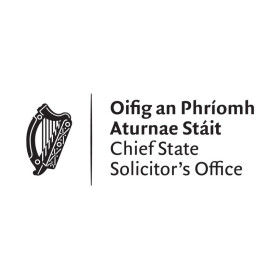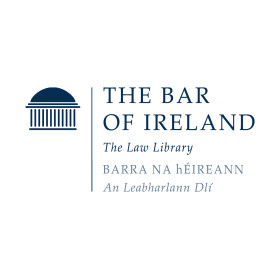By Gráinne Bryan, Sonia Cheng, Dave Harvey, Jonathan Neilan, FTI Consulting Cybersecurity and privacy have in recent years gained “buzzword” status in the boardroom. An ongoing groundswell of global data privacy enforcement and a perpetual upswing in the severity and frequenc
Analysis
Darren Toombs, partner at Carson McDowell, provides an update on the Bankruptcy Court as it reopens its doors to creditor bankruptcy petitions — albeit at additional cost to business and trade creditors — while corporate winding up petitions remain in limbo. As we start a new court term
Mason Hayes & Curran LLP partner Oisín Tobin and associate Conor Califf explore the data protection issues surrounding the use of drones. Most drones possess the ability to collect personal data. This often occurs, for instance, by the recording of their surroundings during flight through
William Fry partners Leo Moore, Craig Sowman and Derek Hegarty examine the legal issues at the centre of Usain Bolt's new trade mark application. Victory in sport has resulted in many iconic celebratory expressions from athletes. These include Christiano Ronaldo's "Siu" celebration, Mo Farah's iconi
Dillon Eustace partners John O'Riordan and Rachel Turner examine the Central Bank of Ireland's move towards greater enforcement. Last year saw the Central Bank impose a record level of monetary fines on financial firms and individuals. These fines contributed to the Central Bank’s profits incr
Joe McVeigh, partner and head of the corporate department at BHSM, summarises the key features of Ireland's proposed new investment screening regime. On 2 August 2022, the government published the Screening of Third Country Transaction Bill 2022. The bill has been drafted in response to the potentia
Bill Holohan SC considers the take-up of mediation by solicitors since landmark legislation was introduced more than four years ago. The Mediation Act 2017 commenced on 1 January 2018. Court rules for the District Court, Circuit Court and the High Court were introduced very shortly thereafter. In Ja
The Institutional Burials Act 2022 commenced on 15th July 2022.1 It is a remarkable new law that literally creates “groundbreaking” powers. Its three goals in relation to “manifestly inappropriate burials”2 on institutional land are to: (i) identify human remains, (ii) make f
John Dugdale, partner at Belfast firm Carson McDowell, examines a recent English court ruling with significance for construction law. A recent judgment of the Court of Appeal in England and Wales has provided guidance on whether a collateral warranty can be a “construction contract” for
Claire Morrissey of Maples and Calder, the Maples Group's law firm, examines new EU guidelines on GDPR fines. The approach to the General Data Protection Regulation (GDPR) fines has varied significantly across EU member states. On 16 May 2022, the European Data Protection Board (EDPB) published draf
Darryl Broderick of RDJ LLP writes on a recent Court of Appeal decision concerning directors' obligations under the Companies Act. Section 819 of the Companies Act 2014 operates to restrict directors of insolvent companies from being appointed or acting as a director or secretary of a company and fr
Kirsten Magee, partner at Belfast-based Mills Selig, examines the unofficial Bridgerton musical from an intellectual property perspective. I do enjoy when one of my passions (in this case musical theatre) throws up an interesting legal point. I therefore read with interest the particulars of a claim
Jason O'Sullivan, principal and founder of J.O.S Solicitors, urges the government to take action in the wake of scrutiny of RTÉ's employment practices. The national broadcaster Raidió Teilfís Éireann (RTÉ) continues to face ongoing scrutiny and criticism of its wel
Daragh Troy BL summarises the outcome of a recent court ruling with significance for data controllers in the EU. Does your spouse's name reveal your sexual orientation? The Court of Justice of the European Union has delivered judgment and, unsurprisingly, again given the broadest possible interpreta
Matthew Howse, partner at Eversheds Sutherland in Belfast, highlights recent changes to gaming laws in Northern Ireland. For years, people in this part of the world have been used to seeing “Northern Ireland excluded” or “does not apply in Northern Ireland” on their TV screen

























